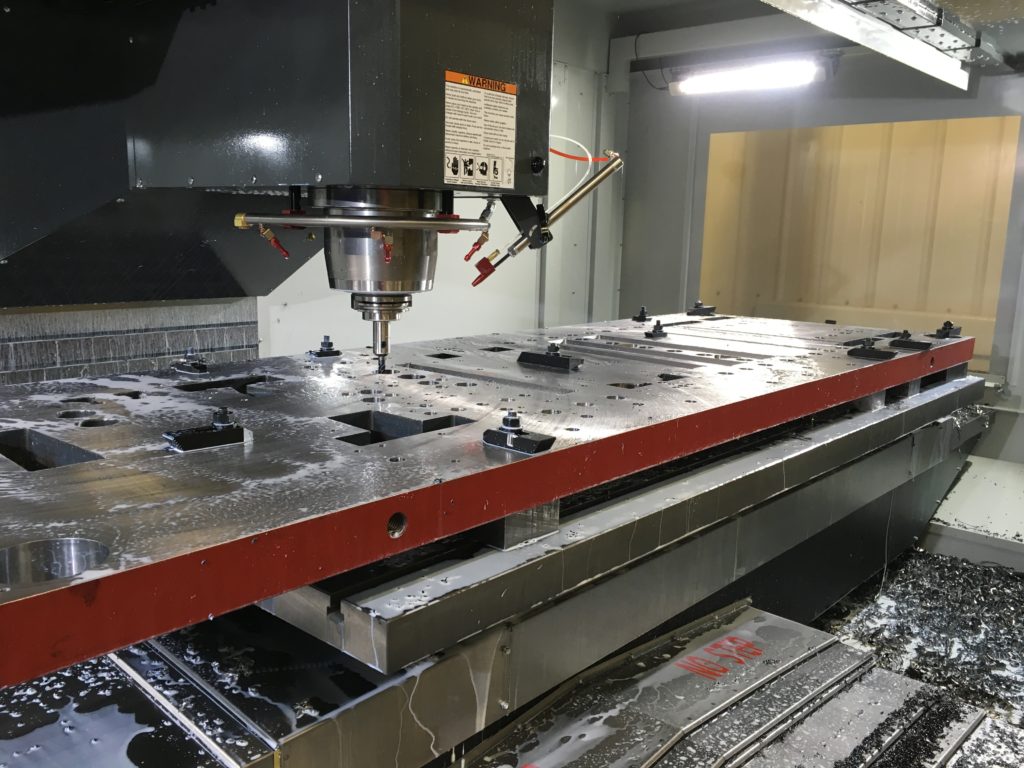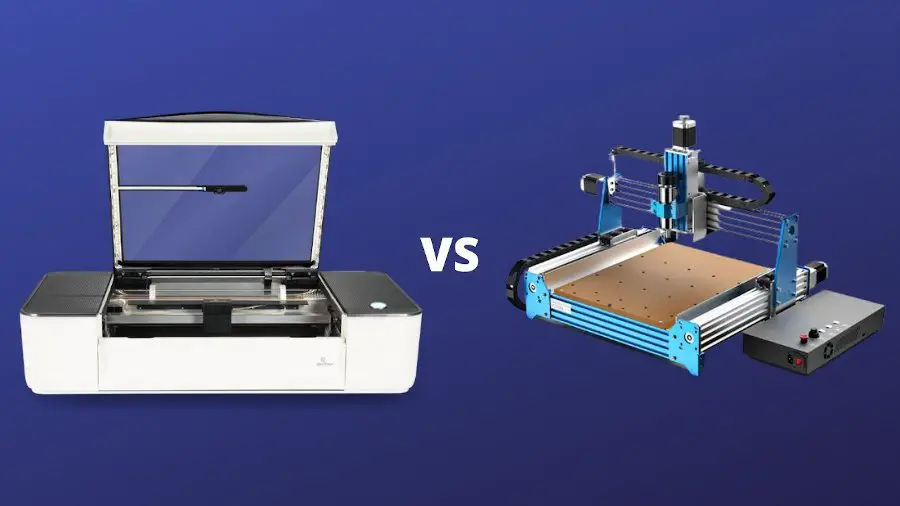Table of Contents
CNC machining has been a game-changer for the manufacturing industry, revolutionizing the way parts and products are produced. However, with the rise of 3D printing and other advanced technologies, some experts are asking the question: is CNC machining dying?
While CNC machining has been a staple in modern manufacturing for several decades, recent advancements in other technologies have raised concerns about its future. In this article, we will explore the current state of CNC machining, its advantages and limitations, and whether or not it is at risk of becoming obsolete in the near future.
Is CNC Machining Dying?
CNC machining is not dying, but rather evolving. While traditional CNC machines have been around for decades, advancements in technology have led to the development of more advanced machines that can produce more complex parts with greater precision and accuracy. Additionally, the rise of automation and the internet of things (IoT) has made CNC machining more efficient and cost-effective than ever before. As a result, CNC machining continues to play a crucial role in manufacturing industries worldwide.
Is CNC Machining Dying?
CNC machining has become a crucial part of the manufacturing industry over the past few decades. However, with the rise of new technologies like 3D printing and automation, some people are wondering if CNC machining is becoming obsolete. In this article, we’ll explore whether or not CNC machining is dying, and what the future of the industry may hold.
What is CNC Machining?
CNC machining is a manufacturing process that uses computer-controlled machines to create precise and complex parts. The machines are programmed to follow a specific set of instructions that dictate the movements of the cutting tools. This allows for a high degree of accuracy and consistency, making CNC machining ideal for creating parts with tight tolerances.
CNC machines can be used for a variety of materials, including metals, plastics, and wood. They can also be used for a range of applications, from aerospace and automotive to medical and consumer products.
The Rise of 3D Printing
3D printing has been gaining popularity in recent years as a new way to create parts and prototypes. Unlike CNC machining, 3D printing uses additive manufacturing to build up layers of material until the desired shape is achieved. This can be a faster and more cost-effective method for creating certain parts.
While 3D printing has its advantages, it’s not always the best option for every application. CNC machining is still the preferred method for creating parts with high precision and accuracy. Additionally, CNC machines can handle a wider range of materials and can produce parts at a faster rate than 3D printers.
The Benefits of CNC Machining
CNC machining has several advantages over other manufacturing methods. First and foremost, it offers a high level of precision and accuracy. This is essential for creating parts that need to fit together perfectly or meet strict tolerances.
CNC machining is also highly customizable. The machines can be programmed to create parts of any shape or size, with a wide range of materials to choose from. This allows for a great deal of flexibility in the manufacturing process.
Another benefit of CNC machining is its speed. While 3D printing can be faster for certain applications, CNC machines can produce parts at a much faster rate overall. This makes them a better option for high-volume production runs.
The Future of CNC Machining
While new technologies like 3D printing and automation are changing the manufacturing industry, CNC machining is far from dying. In fact, it’s likely that CNC machining will continue to play a vital role in the industry for many years to come.
As manufacturing becomes more automated, CNC machines will become even more efficient and easy to use. This will make them more accessible to smaller companies and individuals who may not have had access to this technology in the past.
Overall, there’s no denying that CNC machining is still an essential part of the manufacturing industry. While new technologies may offer new opportunities, CNC machining will remain a crucial method for creating precise and complex parts.
Frequently Asked Questions
CNC machining has been around for decades, but with the rise of new technologies, some have begun to question whether it is dying. Here are some common questions and answers about the state of CNC machining today.
Is CNC machining becoming obsolete?
While there are new technologies emerging every day, CNC machining is far from becoming obsolete. In fact, it remains an essential process for many industries, including aerospace, automotive, and medical device manufacturing. While 3D printing and other additive manufacturing methods are gaining popularity, they cannot replace CNC machining for certain applications.
CNC machining offers a level of precision and consistency that is unmatched by other manufacturing methods. It also allows for a wider range of materials to be used, including metals, plastics, and composites. As long as there is a need for high-quality, high-precision parts, CNC machining will continue to be a valuable process.
Are there any new developments in CNC machining?
Yes, there are constantly new developments in CNC machining technology. One of the most significant recent advancements is the integration of artificial intelligence (AI) and machine learning into CNC machines. This allows for greater automation and efficiency, as well as improved quality control.
Other new developments include the use of high-speed machining techniques, which allow for faster and more precise cutting, and the development of hybrid machines that combine additive and subtractive manufacturing methods. These new technologies are helping to keep CNC machining relevant and competitive.
Is demand for CNC machinists decreasing?
While some have speculated that demand for CNC machinists is decreasing, this is not necessarily the case. While it’s true that some low-skilled jobs are being automated, there is still a need for skilled machinists who can operate and program CNC machines.
In fact, the demand for skilled CNC machinists is expected to remain steady or even increase in the coming years, as more industries adopt CNC machining technology. Additionally, as older machinists retire, there will be a need for new workers to fill their positions.
What are the advantages of CNC machining?
CNC machining offers a number of advantages over other manufacturing methods. One of the biggest advantages is precision. CNC machines can produce parts with incredibly tight tolerances, which is essential for many industries, including aerospace and medical device manufacturing.
CNC machining also offers a high degree of repeatability and consistency. Once a program has been created, the machine can produce identical parts over and over again with minimal variation. This makes CNC machining ideal for producing large quantities of parts.
What industries use CNC machining?
CNC machining is used in a wide range of industries, including aerospace, automotive, medical device manufacturing, and electronics. It is also used in the production of consumer goods, such as custom jewelry and high-end bicycles.
Any industry that requires high-precision, high-quality parts can benefit from CNC machining. As the technology continues to evolve and improve, it is likely that we will see even more industries adopt CNC machining in the future.
In conclusion, the question of whether CNC machining is dying is a complex one that cannot be answered with a simple yes or no. While it is true that some traditional machining methods may be losing ground to newer technologies, CNC machining remains a critical part of the manufacturing industry.
There are many factors that contribute to the ongoing success of CNC machining, including its versatility, precision, and ability to handle a wide range of materials. Furthermore, the continued development of new software and hardware tools is ensuring that CNC machining remains at the forefront of innovation in the industry.
While it is true that CNC machining may face some challenges in the coming years, such as growing competition from 3D printing and other technologies, it is unlikely that it will disappear altogether. With its proven track record of reliability and efficiency, CNC machining is likely to remain a vital part of the manufacturing landscape for years to come.
Request a quote today!
[contact-form-7 id="1578" title="Contact form"]
Please compress the file into a ZIP or RAR file before uploading. Alternatively, send through your RFQ by email.
enquires@unitymanufacture.com





